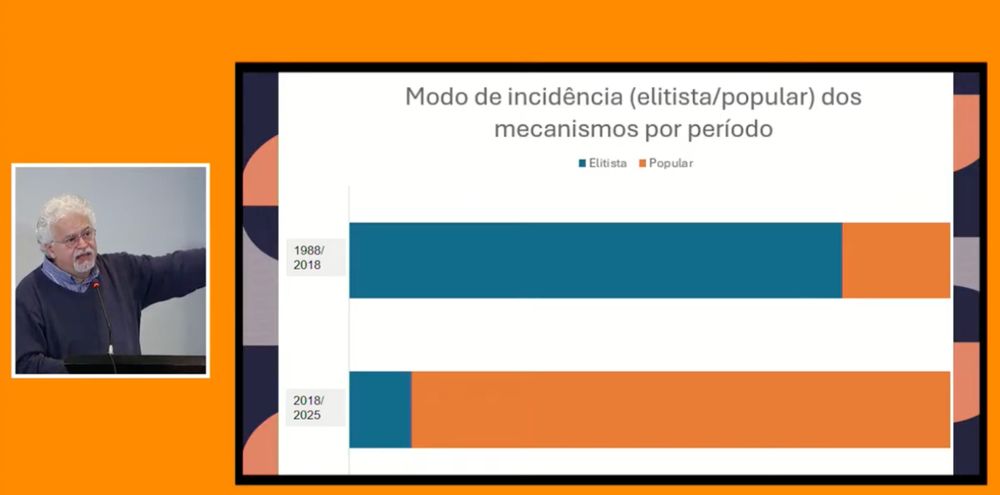
CoLead @glocan.bsky.social
CoChair @ecpr.bsky.social's Standing Group on Democratic Innovations
📍Berlin
Overly focusing on elections, ideology, and institutions may result in partial images of how democratic disputes are taking place.
-@welpita.bsky.social

Overly focusing on elections, ideology, and institutions may result in partial images of how democratic disputes are taking place.
-@welpita.bsky.social
Approaching participatory institutions as part of regimes of social control evidences that participation can be embedded in political systems in ways that aren't easily coopted or dismantled by incoming power-holders.

Approaching participatory institutions as part of regimes of social control evidences that participation can be embedded in political systems in ways that aren't easily coopted or dismantled by incoming power-holders.
Chile's Frente Amplio has faced shortcomings on all fronts: mistrust from social movements, inability to dismantle clientelistic parties, incompatibility between parliamentary and mobilisation work, and compromising when advancing agendas.

Chile's Frente Amplio has faced shortcomings on all fronts: mistrust from social movements, inability to dismantle clientelistic parties, incompatibility between parliamentary and mobilisation work, and compromising when advancing agendas.
One of their first challenges was to transform their 'elitist' origin into a stable organization that does not renounce their horizontal roots and values, but can build mobilisation capacity and develop broad alliances.

One of their first challenges was to transform their 'elitist' origin into a stable organization that does not renounce their horizontal roots and values, but can build mobilisation capacity and develop broad alliances.
The state is patriarchal, but also a strategic asset.

The state is patriarchal, but also a strategic asset.
In the context of conservatist backlash, feminist bureaucratic activists operate simultaneously within and without the state. They work as translators, intermediators, and influencers of policy agendas.

In the context of conservatist backlash, feminist bureaucratic activists operate simultaneously within and without the state. They work as translators, intermediators, and influencers of policy agendas.


This challenges established knoweldge that participation expanded the most under Lula and Rousseff.

This challenges established knoweldge that participation expanded the most under Lula and Rousseff.
They compare participatory institutions, from participatory budgeting to councils and policy conferences, not across cases, but as part of regimes of social control.

They compare participatory institutions, from participatory budgeting to councils and policy conferences, not across cases, but as part of regimes of social control.

